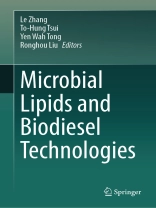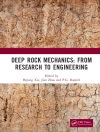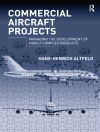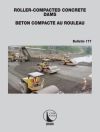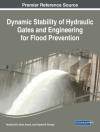This book, belonging to energy discipline, summarized the latest research progress in the development of microbial lipids and biodiesel technologies. This book introduced the concept and development of microbial lipids and biodiesel technologies, the microbial lipid technology based on oleaginous yeasts, filamentous fungi, microalgae, bacteria, and thraustochytrids. Meanwhile, this book introduced the inhibition and removal of lignocellulosic hydrolysis inhibitors on microbial fermentation for lipid production, the isolation and screening of high-yield strains of oleaginous microorganisms, the use of metabolic engineering to transform oleaginous microorganisms, the process engineering technologies for optimization and process improvement, the harvesting of microbial cells and the extraction of microbial lipids, the production of crude biodiesel by esterification of microbial lipids, the biodiesel purification technology as well as the challenges and prospects of the industrialization of biodiesel technology based on microbial lipids. Reading this book will help readers comprehensively understand the latest developments in the field of ‘microbial lipids and biodiesel technologies’. This book takes into account the relevant practical engineering technologies and the latest basic scientific research, and can be used as a reference for the researchers, engineers, investors, policy-makers, and students engaged in clean energy, microbial lipids and biodiesel industries.
Tabla de materias
Chapter 1 – Concept and development history of microbial lipids and biodiesel technologies.- Chapter 2 Microbial lipid technology based on oleaginous yeasts.- Chapter 3 Microbial lipid technology based on oleaginous filamentous fungi.- Chapter 4 Microbial lipid technology based on oleaginous microalgae.- Chapter 5 Microbial lipid technology based on oleaginous bacteria.- Chapter 6 Microbial lipid technology based on oleaginous thraustochytrids.- Chapter 7 Inhibition and deactivation of lignocellulosic hydrolysis inhibitors on microbial fermentation for microbial lipid production.- Chapter 8 Isolation, screening, breeding and preservation of high-yield strains of oleaginous microorganisms.- Chapter 9 Improvement of the ability of lipid accumulation by modifying oleaginous microorganisms through metabolic engineering.- Chapter 10 Process engineering technologies for optimization and enhancement of the microbial fermentation for lipid production.- Chapter 11 Harvesting of oleaginous microbial cells and extraction of microbial lipids.- Chapter 12 Production of crude biodiesel by transesterification of microbial lipid and its purification technology.- Chapter 13 Challenges and prospects of biodiesel technology for industrialization based on microbial lipids.
Sobre el autor
Le Zhang Dr. Le Zhang is currently an Associate Professor and a Ph.D. supervisor in the Biomass Energy Engineering Research Centre/Department of Resources and Environment in School of Agriculture and Biology at Shanghai Jiao Tong University (SJTU). He received his Ph.D. degree from the Department of Chemical and Biomolecular Engineering from National University of Singapore (NUS). After Ph.D. graduation, Dr. Zhang worked in the NUS Environmental Research Institute (NERI) at NUS before joining SJTU. His research focusses on biomass energy, waste-to-resources, and environmental biotechnology. His research contents involve microbial fermentation of organic wastes to produce green energy and resources, anaerobic digestion technology, as well as microbial fermentation for production of microbial lipids and biodiesel. He has coordinated several research projects such as NSFC project and participated in five international and national research projects, including a major collaborative programme (E2S2-CREATE) between NUS and SJTU. Dr. Zhang has published 1 book, 52 papers, 7 book chapters, 13 patents, and participated in 1 international standard. His publications have been cited worldwide for more than 3100 times, with an H-index of 33. He has conducted academic exchanges in more than 25 international conferences held in UK, Spain, Greece, and Singapore, etc. He is also a Conference Organizing Committee Member in several international conferences, a member of IBA & BESS and several other associations, and a manuscript reviewer for over 30 international journals and books. Dr. Zhang is the recipient of the Best Oral Presentation Award at an international conference, Achievement Award from Bio Energy Society of Singapore, Best Teaching Assistant Award from Department of Chemical & Biomolecular Engineering at NUS, and Shanghai High Level Talent.
To-Hung TSUI To-Hung TSUI is a researcher in the Agile Initiative at the Oxford Martin School, University of Oxford, where he focuses on advancing systems analysis and machine learning applications to drive food system transformation and resilient infrastructure development. Prior to joining Oxford, he studied and worked across various academic institutions, including the Hong Kong University of Science and Technology, UNESCO-IHE in Delft, Netherlands, and the National University of Singapore. As a principal investigator, he secured research grants aimed at upgrading full-scale Organic Resource Recovery Centres in Hong Kong. His contributions in environmental biotechnology were recognized with the prestigious HKIE Innovation Award – Grand Prize.
Yen Wah Tong Prof. Yen Wah Tong has been working in the Department of Chemical and Biomolecular Engineering at National University of Singapore (NUS) since 2001, with research in biomaterials for medical applications and bioprocessing for waste management. He graduated with a B.A.Sc. in Engineering Chemistry from Queen’s University and a Ph.D. in Chemical Engineering from the University of Toronto. From 2012 to 2024, he was the co-Programme Director of E2S2-CREATE, a major international research programme with Shanghai Jiao Tong University, funded by the National Research Foundation for over S$46 million, that looks into waste management and emerging contaminants. Prof Tong has published 251 papers with citations over 16000, and an h-index of 74, with publications in many highly reputable Journals in the field of Bioenergy, Waste management, Biotechnology and Biochemical Engineering. He has co-edited 6 Books on various aspects of biofuel and microbiology covering his interests.
Ronghou Liu Prof. Ronghou Liu is a Full Professor with Tenure in the Department of Resources and Environment, School of Agriculture and Biology, Shanghai Jiao Tong University (SJTU), P. R. China. He is PI of Biomass Energy Engineering Research Group and director of Biomass Energy Engineering Research Centre, School of Agriculture and Biology, SJTU. He was successively selected as Most Cited Chinese Researcher of Elsevier in 2020, 2021, 2022, and 2023. He was selected in the list of the world’s top 100, 000 scientists released by the Global Academic Database. He is World’s Top 2% Scientists according to research of Professor John P.A.Ioannidis from Stanford University, USA. He has done teaching and research work in the field of renewable energy and environment since 1984. Professor Ronghou Liu has coordinated and participated more than 30 research projects and won many honors. He was awarded second prize of Natural Science Award in Scientific Research (Science and Technology) of the Ministry of Education (he ranked first). He has published 9 books as editor-in-chief and published more than 260 papers in journals with an H-index of 46. He has also obtained 28 authorized China National invention patents as the first inventor. He was appointed as an Expert of Rural Energy Integrated Construction of China by the Ministry of Agriculture and Rural Affairs of China; he was selected as one of One Hundred Elite Engineering of Provincial Government; he was awarded as Outstanding Youth Teacher of Provincial Government; he won The Seventh Youth Scientific Prize of Chinese Agronomy Society; he was awarded as Outstanding Individual of Renewable Energy Integrated Construction of Provincial Government, etc. At present, Professor Ronghou Liu is mainly doing research in biomass energy engineering and environment protection. The main research fields include biomass pyrolysis for bio-oil production technology, biogas, bioethanol, biochar, characteristics of biomass, energy systems, etc.
